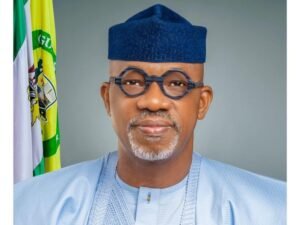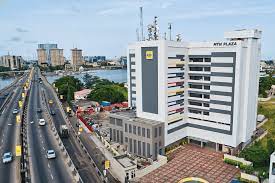
By David Akinmola
Experts have attributed the low acceptance of compulsory insurance to lack or low enforcement with Nigeria’s insurance penetration estimated at less than one per cent.
Besides, they also stressed the need for strong alliances among government, security agencies, regulators and industry players to explore opportunities in the different compulsory insurance policies as provided under the Insurance Act 2003, the National Pension Commission Act 2004 and the National Health Insurance Act of 1999.
There have been some efforts, particularly by the National Insurance Commission (NAICOM) to explore these opportunities. But lack of enforcement has been a major setback.
Experts who gathered at just concluded, Africa Insurance Organisation (AIO) held in Kenya urged insurance stakeholders in the continent to work together and deal with the challenges bedevilling the insurance industry’s growth.
The former president of the association, Tope Smart, in his paper delivered at the event, said there is a need to bridge the sector gap by addressing all the challenges confronting the markets in Africa. With determination and commitment, we can do this,” the group managing director of NEM Insurance Plc said.
While calling on African insurers to remember and renew their trust in AIO executives, he said he looked forward to better African insurance industry in the years to come.
Smart, also highlighted “Low penetration, slow growth, despite the wide room for growth, are some of the challenges of the sector particularly, in the Nigerian insurance sector. These are challenges we are coming together to tackle. These are some of the reasons we are in business,
Speaking on the issue of the slow uptake of the products offered by the operators particularly in the Nigerian market and the entire African market, the Managing Director/Chief Executive Officer, First Bank of Nigeria, FBN, Insurance, Valentine Ojumah, said the insurance sector is a key part to the financial sector, pointing out that in developed markets, the insurance sector accounts for a significant portion of the total economy.
In collecting relatively small premiums from many individuals in the economy, he said insurers were able to pull together, better than other institutions, a large pool of funds that could be invested for short or long-term periods.
An industry research report by Vetiva Capital Management stated that insurers could serve as a means of long-term financing, the sector was important for sustained economic growth; adding that this was expected to deepen and broaden the domestic financial services universe and generate higher savings rates and greater economic development.
“We believe that the Insurance sector is critical to the ability to emerge and transitional economies like Nigeria to grow and develop, as well as provide a reliable cover for risk to the citizens. Insurance provides stability by allowing large and small businesses to operate with a lesser risk of volatility or failure,” the report stated.
However, before the recapitalisation of insurance firms in 2007, the report identified some of the challenges of the industry including undercapitalization of existing industry players, dearth of appropriate human capital and professional skills, poor returns on capital, the existence of too many fringe players and poor asset quality.
NAICOM in the last few years, in an effort to increase the industry’s penetration in Nigeria, has continued to intensify stakeholder engagements that would enable explore these potentials, but these were yet to translate to good numbers as at the last count in 2021, as not much impact has been made except only in a motor third party insurance policy.
The industry premium is still around N508 billion in 2021 as the total claims on Endsars Protest Hits N11bn with a penetration level of 0.4 per cent to the GDP, but industry observers believe that this should have gone beyond these levels if the government securities agencies are involved in driving the market.
It is the expectation of NAICOM however, that the industry premium income could be more than a trillion naira if these compulsory insurances are harnessed.
However, with recent engagements with state governors by NAICOM under the supervision of the Commissioner for Insurance, Sunday Thomas, hope is high that these risks will be domiciled in the states and some results would come from the industry.
Kano State and Lagos have shown a strong commitment to increasing enforcement of these risks, as some of the state governments have formed strategic committees with NAICOM.
The industry is also expected to reasonably eliminate the presence of quarks issuing fake third-party motor insurance across the states, and convert such losses to benefit the sector.








